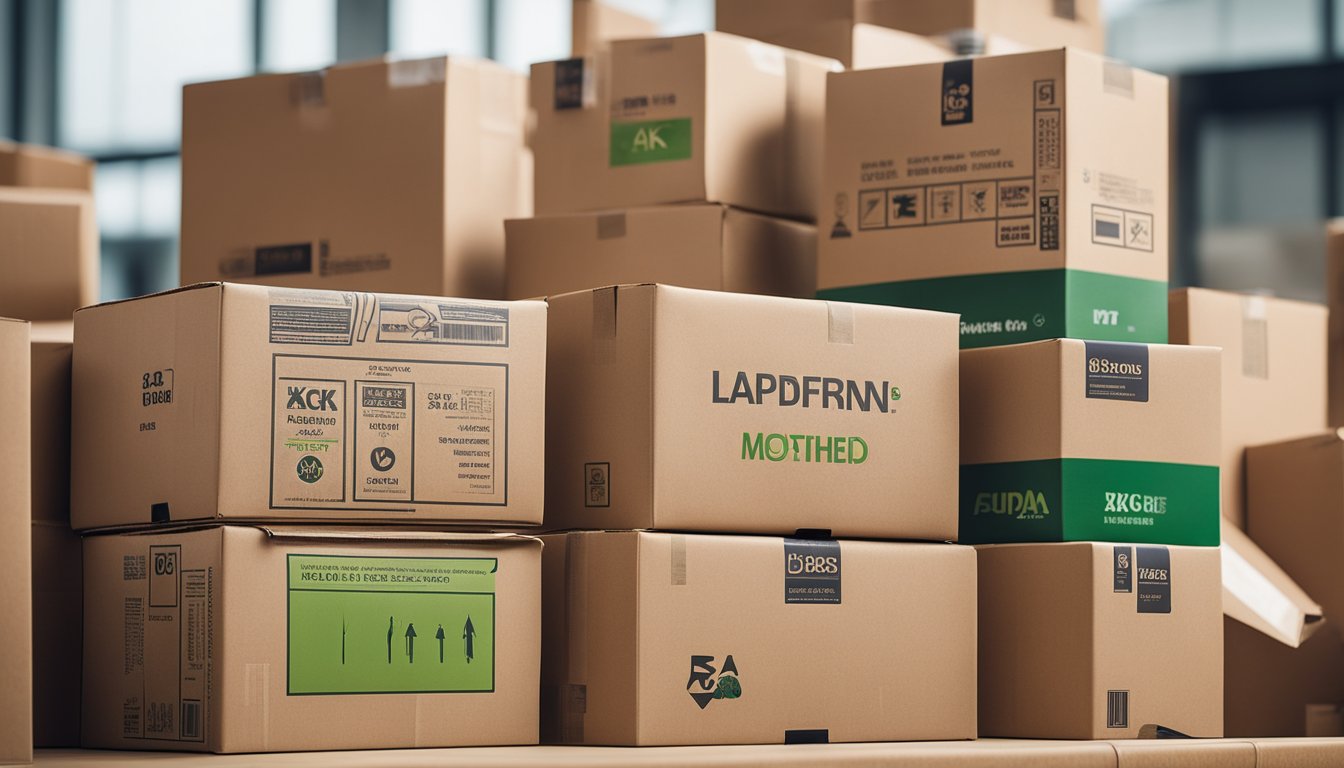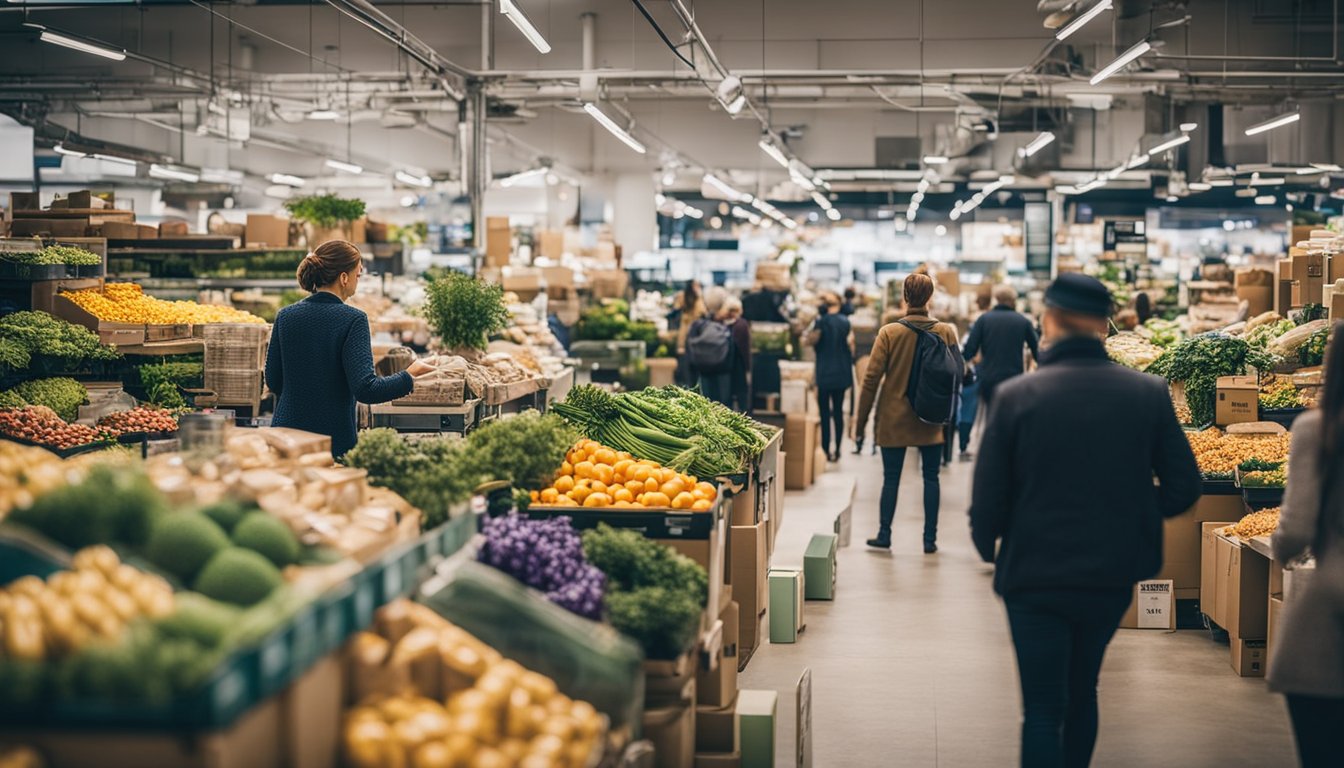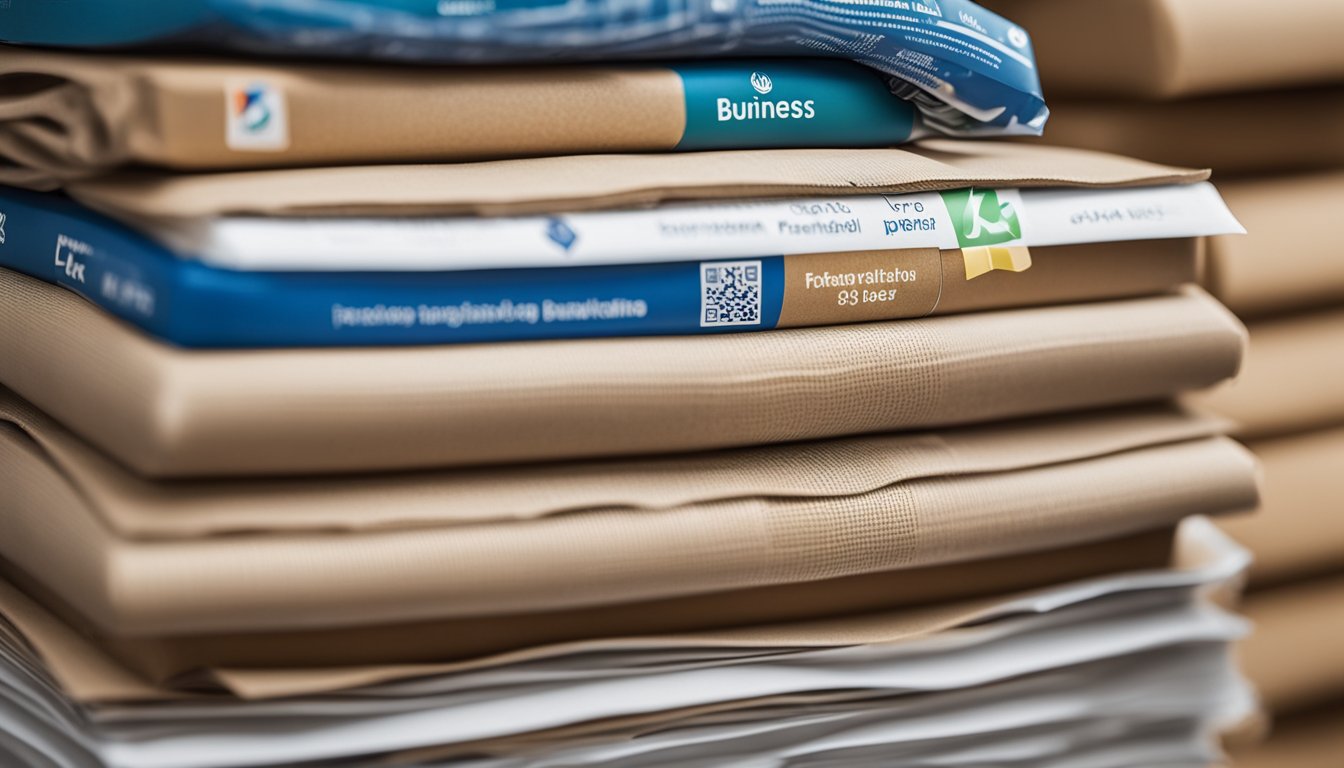Late updated: 09 Aug 2024 08:08
Written by: Amber Collins
Greener Packaging Solutions For UK Businesses: Sustainable Choices for a Brighter Future
Greener packaging has become more than just a trend for UK businesses; it's a necessity. Increasingly, companies across the nation are recognising the profound impact that sustainable practices have on both the environment and consumer perception. Embracing eco-friendly packaging solutions not only helps reduce waste but also enhances a company's reputation among eco-conscious clients.

From biodegradable plastics to recyclable paper and cardboard, the options for green packaging are expanding rapidly. Businesses now have an array of sustainable materials at their disposal to tailor their packaging needs. This shift toward sustainability is not only beneficial for the planet but also offers a competitive edge in the market, as consumers are more likely to support brands that prioritise environmental responsibility.
Our commitment to green packaging is reflected in our diverse range of products, aimed at reducing environmental footprints while maintaining high-quality standards. Whether you're a bustling city takeaway or a quaint countryside café, making the switch to sustainable packaging can significantly improve your environmental performance and appeal to a broader audience.
Key Takeaways
- Sustainable packaging boosts both environmental impact and brand reputation.
- Diverse green materials are available for tailored business solutions.
- Eco-friendly packaging appeals to and engages a wider market audience.
Exploring Sustainable Packaging Solutions for UK Businesses

As the shift towards sustainable practices gains momentum, UK businesses are increasingly adopting eco-friendly packaging solutions. The focus is on leveraging innovative materials, optimising carbon footprints, and collaborating with suppliers to enhance sustainability and compliance with regulations.
Eco-Friendly Materials and Design Innovations
The selection of materials plays a vital role in sustainable packaging. Biodegradable and compostable options such as cornstarch, sugarcane fibres, and mushroom mycelium are gaining traction. These materials decompose naturally, reducing long-term waste and leaving no toxic residue.
Recyclable and renewable resources are also popular, like kraft paper and cardboard, which maintain quality while offering environmental benefits. Enhanced design innovations focus on lightweight packaging to minimise material usage, thereby reducing both costs and environmental impact.
Moreover, modular design principles enable efficient packing and shipping, further enhancing sustainability. This kind of innovative thinking supports circular economy models, ensuring materials are reused and recycled effectively.
Strategies for Minimising Carbon Footprint
Reducing carbon footprint involves several strategic steps. Efficient logistics can make a substantial difference by optimising transportation routes and methods. Using locally sourced materials also cuts down on emissions associated with long-distance shipping.
Implementing energy-efficient manufacturing processes like streamlined machinery operations can curb energy consumption. Employing lightweight packaging solutions not only reduces material use but also lowers transportation emissions due to lighter loads.
Another approach includes implementing renewable energy sources within the production process. By focusing on energy-efficient practices, businesses not only lower their carbon footprint but also contribute to substantial cost savings over time.
Role of Suppliers in Driving Greener Packaging
Suppliers are instrumental in promoting sustainable packaging. Partnering with suppliers that offer tailored solutions crafted from sustainable materials ensures businesses meet their sustainability goals. These partnerships can provide insights into the latest innovations and eco-friendly practices.
Suppliers committed to sustainability often engage in continuous research and development to improve quality and efficiency of packaging solutions. Their dedication to environmental consciousness drives the market forward, making greener options more readily available.
Effective collaboration with suppliers can lead to custom solutions that align with brand values while adhering to regulatory standards. Leveraging supplier expertise can significantly enhance a business's sustainable packaging efforts.
Engaging with Clients and the Market

Our approach involves optimising packaging to meet client needs, promoting circular economy practices in the supply chain, and clearly communicating our commitment to sustainability.
Optimising Packaging for Client Needs and Branding
We tailor our packaging solutions to align with clients' specific needs and branding goals. This includes conducting audits of current packaging processes to identify eco-friendly alternatives and opportunities for cost savings.
Our clients benefit from bespoke solutions that incorporate sustainable materials like biodegradable void fill and reusable containers. This not only enhances brand image but also demonstrates a firm commitment to ecological consciousness.
Promoting Circular Economy in the Supply Chain
Implementing a circular economy in the supply chain is essential for reducing plastic waste and promoting sustainability. We work closely with suppliers to adopt sustainable packaging solutions that can be reused, recycled, or repurposed.
By integrating these practices, we help our clients minimise environmental impact and support a positive ecological mission. Our efforts include establishing systems to ensure that all materials are part of a closed-loop cycle, reducing reliance on virgin resources.
Communicating Commitment to Sustainability
Transparent communication is vital for building trust with clients. We make our sustainability mission and vision clear through regular updates via newsletters and news releases.
Clients are kept informed about the positive impacts of their packaging choices, reinforcing their commitment to greener solutions. Engaging clients in this way not only strengthens relationships but also encourages a collaborative approach to achieving shared sustainability goals.
Frequently Asked Questions

We address the most pertinent questions UK businesses have regarding greener packaging solutions. Our responses are crafted to provide clear, concise, and actionable insights.
What are the best eco-friendly food packaging options for small UK businesses?
Small UK businesses can benefit from using biodegradable packaging materials like PLA (polylactic acid), which is derived from renewable resources such as corn starch. Paper and cardboard, especially those with compostable linings, are excellent for both dry and wet food items.
How can UK businesses ensure their packaging is truly sustainable?
UK businesses should seek third-party certifications such as FSC (Forest Stewardship Council) and look for suppliers that adhere to sustainable practices. Engaging in lifecycle assessments can help identify and reduce the environmental impact of their packaging.
What materials are recommended for green packaging in the UK market?
The UK market favours materials like recycled paper, cardboard, and biodegradable plastics. Sugarcane bagasse, bamboo, and mushroom-based packaging are innovative materials gaining popularity for their minimal environmental impact and renewability.
Where can UK businesses source reliable eco-friendly packaging suppliers?
Suppliers such as Eco Packaging Online, Transcend Packaging, and Packhelp offer reliable eco-friendly packaging solutions. It’s advisable to request samples and certifications to ensure the materials meet environmental standards and are durable for business needs.
Which customisable packaging solutions are available that also meet environmental standards?
Customisable options include printed cardboard boxes, compostable mailers, and branded biodegradable bags. These solutions allow businesses to maintain their brand identity while ensuring their packaging is eco-friendly. Many suppliers offer bespoke services tailored to specific business requirements.
What innovations are UK companies introducing in eco-friendly packaging printing?
UK companies are pioneering the use of water-based inks and digital printing technologies that reduce waste and emissions. Additionally, advancements in sustainable adhesives and coatings are making packaging more durable and fully recyclable without compromising environmental standards.
